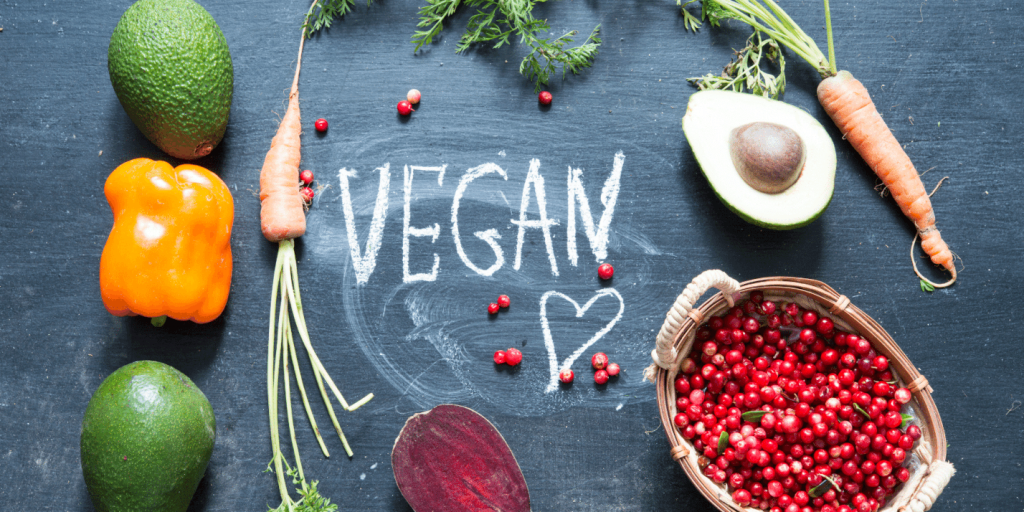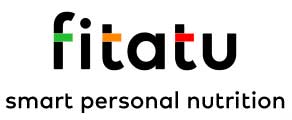Vegan diet – learn about 4 benefits of its use

On the occasion of World Vegan Day, which falls on 1.11, we take a closer look at the idea of a vegan diet and present 4 benefits of following it. However, it is worth noting that it is not always healthy.
A vegan diet is an elimination diet that involves the exclusion of all animal products. This includes dairy products, honey and eggs, among others. It is sometimes confused with a vegetarian diet, which only excludes meat and fish, but this is not the same thing. Following a plant-based diet can have a number of benefits, which we will discuss in more detail today.
A vegan diet is richer in certain nutrients
Due to its high consumption of vegetables and fruit, a vegan diet can be richer in certain nutrients. Research shows that a vegan diet can provide more fibre and antioxidants found in fruit and vegetables. It may also be richer in folic acid, potassium and magnesium, as well as vitamins A, C and E.
Although a vegan diet can offer a wealth of vitamins and minerals, it also has some limitations. Due to the elimination of animal products, it does not provide (or insufficiently provides) certain vitamins and minerals and supplementation may be necessary. These nutrients include vitamin B12 and D, as well as zinc or calcium. Read more about supplementation in a vegan diet in the article Supplementation in a vegan diet.
A vegan diet can have a positive effect on the intestinal microflora
The intestinal microflora of vegans appears to be significantly different to that of omnivores. It is characterised by a reduced abundance of pathobionts (organisms that can cause harm in certain circumstances) and a higher abundance of protective bacterial species, such as F. prausnitzii.
You can lose weight on a vegan diet
Scientific studies show that a vegan diet is more effective when it comes to weight loss than Mediterranean and low-fat diets.
A study comparing the vegan diet with the Mediterranean diet, was conducted on 62 adults randomly assigned to one of the diets. The low-fat vegan diet was found to improve body weight, lipid levels and insulin sensitivity, both from baseline and compared to the Mediterranean diet. Blood pressure decreased on both diets, but more so on the Mediterranean diet.
The second study, comparing a low-fat vegan diet with a classic low-fat diet, was conducted on 62 overweight postmenopausal women. Those following a vegan diet performed significantly better than those in the other group following a low-fat diet.
In both cases, repeating the same study after one year yielded the same results. The study did not dictate the size of the energy deficit, only the restriction on the inclusion or exclusion of certain food groups, as well as the frequency of their consumption.
Vegan diet reduces the risk of cardiovascular disease
Studies show that people following a vegan diet have a lower risk of cardiovascular disease compared to those on an ordinary healthy diet, as well as a vegetarian diet.
Risks associated with a vegan diet
More and more highly processed foods are available in the shops that boast on the packaging that they are vegan. By basing your diet on such products and not ensuring an adequate supply of fruit and vegetables, you can very easily cause nutrient deficiencies in your body. If you want to try a vegan diet but don’t know how to go about it, don’t be afraid to ask for help. Balancing a vegan diet is difficult and you may find it useful to have the support of an experienced nutritionist at the beginning. He or she will dispel any doubts you may have and help you balance your diet appropriately to suit your needs.
Fitatu App
Download the application from the Play Store or Apple Store and start counting your macros with us!
Do you prefer the web version? No problem. A basic web version is prepared for our subscribers. And now you can use the VEGAN-5BT discount code by going to https://www.fitatu.com/app/order-and-payment and get 29% off your monthly Fitatu Premium.
What else can you find in Fitatu Premium?
- over 2000 recipes plus several new ones every month
- additional plans for intermittent fasting
- the ability to create shopping lists
- a choice of six ready-made menus full of meals to choose
- filtering products and recipes
- more synchronization with fit apps
- access to your Meal Plan in the web version
- no ads!
Bibliography:
- Cornelia Weikert, Iris Trefflich, Juliane Menzel, Rima Obeid, Alessa Longree, Jutta Dierkes, Klaus Meyer, Isabelle Herter-Aeberli, Knut Mai, Gabriele I. Stangl, Sandra M. Müller, Tanja Schwerdtle, Alfonso Lampen, Klaus Abraham, Vitamin and Mineral Status in a Vegan Diet, Dtsch Arztebl Int. 2020 Aug; 117(35-36): 575–582.
- Josefine Nebl, Jan Philipp Schuchardt, Paulina Wasserfurth, Sven Haufe, Julian Eigendorf, Uwe Tegtbur, Andreas Hahn, Characterization, dietary habits and nutritional intake of omnivorous, lacto-ovo vegetarian and vegan runners – a pilot study, BMC Nutr. 2019; 5: 51.
- Dimitra Rafailia Bakaloudi, Afton Halloran, Holly L. Rippin, Kremlin Wickramasinghe, Joao Breda, Michail Chourdakis, Intake and adequacy of the vegan diet. A systematic review of the evidence, Volume 40, ISSUE 5, P3503-3521, May 01, 2021
- 34. Matijašić B.B., Obermajer T., Lipoglavšek L., Grabnar I., Avguštin G., Rogelj I. Association of dietary type with fecal microbiota in vegetarians and omnivores in slovenia. Eur. J. Nutr. 2014;53:1051–1064. doi: 10.1007/s00394-013-0607-6.
- 42. Zimmer J., Lange B., Frick J.-S., Sauer H., Zimmermann K., Schwiertz A., Rusch K., Klosterhalhalfen S., Enck P. A vegan or vegetarian diet substantially alters the human colonic faecal microbiota. Eur. J. Clin. Nutr. 2012;66:53–60.
- 51. Miquel S., Martín R., Rossi O., Bermúdez-Humarán L.G., Chatel J.M., Sokol H., Thomas M., Wells J.M., Langella P. Faecalibacterium prausnitzii and human intestinal health. Curr. Opin. Microbiol. 2013;16:255–261. doi: 10.1016/j.mib.2013.06.003.
- 52. Remely M., Aumueller E., Jahn D., Hippe B., Brath H., Haslberger A.G. Microbiota and epigenetic regulation of inflammatory mediators in type 2 diabetes and obesity. Benef. Microbes. 2014;5:33–43. doi: 10.3920/BM2013.006.
- 53. Moreno-Indias I., Cordona F., Tinahones F.J., Queipo-Ortuño M.I. Impact of the gut microbiota in the development of obesity and type 2 diabetes mellitus. Front. Microbiol. 2014;5:190.
- Matijašić B.B., Obermajer T., Lipoglavšek L., Grabnar I., Avguštin G., Rogelj I. Association of dietary type with fecal microbiota in vegetarians and omnivores in slovenia. Eur. J. Nutr. 2014;53:1051–1064. doi: 10.1007/s00394-013-0607-6.
- Gabrielle M. Turner-McGrievy, Neal D. Barnard, Anthony R. Scialli, A Two-Year Randomized Weight Loss Trial Comparing a Vegan Diet to a More Moderate Low-Fat Diet, Obesity Volume15, Issue 9, September 2007, Pages 2276-2281
- Neal D. BarnardJihad Alwarith, Emilie Rembert, Liz Brandon, Minh Nguyen, Andrea Goergen, Taylor Horne, Gabriel F. do Nascimento, Kundanika Lakkadi, Andrea Tura, Richard Holubkov, Hana Kahleova, A Mediterranean Diet and Low-Fat Vegan Diet to Improve Body Weight and Cardiometabolic Risk Factors: A Randomized, Cross-over Trial, Journal of the American Nutrition Association Volume 41, 2022 – Issue 2
- Lap Tai Le, Joan Sabaté, Beyond Meatless, the Health Effects of Vegan Diets: Findings from the Adventist Cohorts, Nutrients. 2014 Jun; 6(6): 2131–2147.





